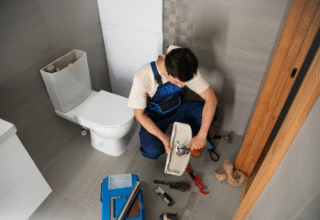
Table of Contents
Introduction
How long do laptops last? Laptops are ubiquitous in our lives. They are the go-to device for work, entertainment, communication, and more. However, laptops are not cheap, and therefore, it is important to know how long they last. In this blog post, we will discuss the factors that affect the lifespan of a laptop, and what you can do to extend its life.
Firstly, it is important to understand that the lifespan of a laptop depends on several factors. These factors include the quality of the components, the amount of use, how it is maintained, and the way it is used. Generally speaking, laptops are expected to last between 3 to 5 years, but this can vary depending on the aforementioned factors.
Quality of Components
The quality of the components in a laptop is one of the most important factors in determining its lifespan. Components such as the processor, motherboard, RAM, and hard drive are essential for the proper functioning of a laptop. If any of these components fail, it can lead to the entire laptop becoming useless. Therefore, it is important to invest in a laptop that has high-quality components.
However, high-quality components come at a higher price. Therefore, it is important to balance the cost of the laptop with the quality of the components. For example, if you are purchasing a laptop for basic tasks such as browsing the internet, sending emails, and working on documents, then you may not need a high-end processor or graphics card. On the other hand, if you are purchasing a laptop for gaming or video editing, then you may need to invest in a laptop with a more powerful processor, graphics card, and more RAM.
Amount of Use
The amount of use a laptop gets can also affect its lifespan. If a laptop is used for several hours a day, it may wear out faster than a laptop that is only used for a few hours a week. Additionally, if a laptop is used for demanding tasks such as gaming or video editing, it may wear out faster than a laptop that is only used for basic tasks such as browsing the internet.
One way to extend the lifespan of a laptop is to limit its use. If possible, try to use your laptop for shorter periods of time or take breaks between use. This will give the laptop a chance to cool down and prevent the components from overheating. Additionally, avoid using your laptop on soft surfaces such as blankets or pillows, as this can block the air vents and cause the laptop to overheat.
Maintenance
Proper maintenance is essential for extending the lifespan of a laptop. Maintenance includes keeping the laptop clean, updating the software and drivers, and replacing worn-out components. Dust and dirt can accumulate inside a laptop, which can block the air vents and cause the laptop to overheat. Therefore, it is important to clean your laptop regularly to prevent this from happening.
Updating the software and drivers on your laptop can also improve its lifespan. Software updates often include bug fixes and security patches, which can improve the performance and stability of your laptop. Similarly, driver updates can improve the performance of the components in your laptop, such as the graphics card or Wi-Fi adapter.
Replacing worn-out components can also extend the lifespan of a laptop. Components such as the battery, hard drive, and RAM can wear out over time, which can affect the performance of the laptop. Therefore, it is important to replace these components when they start to show signs of wear and tear.
Usage
The way a laptop is used can also affect its lifespan. For example, if a laptop is dropped or bumped frequently, it can damage the internal components and cause the laptop to fail. Additionally, exposing a laptop to extreme temperatures or humidity can also cause damage to the components.
To extend the lifespan of your laptop, handle it with care. Avoid dropping or bumping your laptop, and use a protective case or sleeve when carrying it around. When using your laptop, make sure to keep it on a flat and stable surface to prevent it from tipping over. Avoid exposing your laptop to extreme temperatures or humidity, such as leaving it in a hot car or using it in the bathroom during a shower.
In addition, it is important to use your laptop in a well-ventilated area to prevent overheating. Make sure the air vents on your laptop are not blocked by any objects, and use a laptop cooling pad if necessary.
Battery Life
The battery life of a laptop is another factor that affects its lifespan. Lithium-ion batteries, which are commonly used in laptops, have a limited lifespan of around 2 to 3 years. Over time, the capacity of the battery decreases, which can lead to shorter battery life and reduced performance.
To extend the lifespan of your laptop battery, it is important to take care of it. Avoid leaving your laptop plugged in all the time, as this can overcharge the battery and reduce its lifespan. Instead, try to use your laptop on battery power until it reaches a low percentage, and then recharge it. Additionally, avoid exposing your laptop to extreme temperatures, as this can also affect the lifespan of the battery.
Upgrading vs. Buying a New Laptop
As a laptop gets older, you may start to notice that it is not performing as well as it used to. This can be due to worn-out components or outdated software. At this point, you may be faced with the decision to upgrade your laptop or buy a new one.
Upgrading your laptop can be a cost-effective way to extend its lifespan. Upgrades such as replacing the hard drive with an SSD, adding more RAM, or replacing the battery can improve the performance and extend the lifespan of your laptop. However, not all laptops are upgradeable, so it is important to check the specifications of your laptop before attempting any upgrades.
On the other hand, buying a new laptop may be necessary if your current laptop is outdated or beyond repair. New laptops often have more powerful components, better battery life, and the latest software, which can improve your overall computing experience.
Conclusion
The lifespan of a laptop depends on several factors. It includes the quality of the components, amount of use, maintenance, usage, and battery life. By taking care of your laptop and handling it with care, you can extend its lifespan. And get the most out of your investment. Additionally, upgrading your laptop or buying a new one can also improve your computing experience and extend the lifespan of your device.














